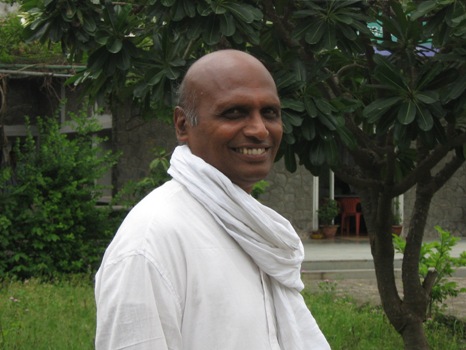/topics/ecology-and-environment
Ecology and Environment
Vacancy: CSE needs programme coordinators/ senior researchers
Posted on 30 Jul, 2009 11:43 AMForwarded to the Portal by: WES-Net India Desk Image & Content Courtesy: CSE ![]()
CSE needs programme coordinators/senior researchers. To research, write, advocate and coordinate activities for environmental change
The Centre for Science and Environment (CSE), an established policy research institution based in New Delhi, is expanding its work on aspects of industrial pollution, domestic sewage, water management, green urbanization. We need colleagues with knowledge of environmental issues or pollution science or engineering or journalism combined with passion and commitment. Our teams are small but focused on the need to bring policy and practice change. So you will have to work in a collegiate environment and under pressure of deadlines.
Vacancy: CSE needs Programme Coordinators/Senior researchers
Posted on 24 Jul, 2009 10:38 AMCSE needs programme coordinators/senior researchers. To research, write, advocate and coordinate activities for environmental change
Tribute to Narendranath, an organic farmer who passed away in Hyderabad
Posted on 19 Jul, 2009 05:36 AMRohini Nilekani: "A fine balance in Kutch"
Posted on 17 Jul, 2009 07:27 PMFrom Rohini Nilekani's "Uncommon Ground" column in Livemint
 As always, the monsoon may or may not come in time and in adequate quantity across the country. As always, again, people who live in the dry areas of the country, especially in the western desert districts of Rajasthan and Gujarat, with less than 250mm of average annual rainfall, will have to cope with scarcity, as they do year on year. Last week, I was in the Kutch region, on work, with soaring temperatures and no promise of rain despite an unusual cloud cover. We travelled a couple of hundred kilometres in the clay desert, despairing at the spread of Prosopis juliflora which—like so many other foreign species brought in by the forest department with all good intentions—has now overpowered large tracts of the countryscape, to the detriment of useful, hardy local species. We also marvelled at the raw beauty of the dry landscape, which yielded sudden delights such as a male nilgai in his prime and slender green bee-eaters diving gracefully in search of prey. Arid districts such as Kutch in Gujarat, and Barmer and Jaisalmer in Rajasthan mainly have livestock economies and it is not unusual to see thousands of animals—goats, cows, sheep, buffaloes and camels—moving amiably along in search of the next watering hole. It seems counter-intuitive that areas with such low rainfall should provide neighbouring states with meat and milk. IWMI (the International Water Management Institute) has done unique research to show how there is a massive export of virtual water from dry regions to wet through the sale of these products, leaving open some interesting questions on policy.
As always, the monsoon may or may not come in time and in adequate quantity across the country. As always, again, people who live in the dry areas of the country, especially in the western desert districts of Rajasthan and Gujarat, with less than 250mm of average annual rainfall, will have to cope with scarcity, as they do year on year. Last week, I was in the Kutch region, on work, with soaring temperatures and no promise of rain despite an unusual cloud cover. We travelled a couple of hundred kilometres in the clay desert, despairing at the spread of Prosopis juliflora which—like so many other foreign species brought in by the forest department with all good intentions—has now overpowered large tracts of the countryscape, to the detriment of useful, hardy local species. We also marvelled at the raw beauty of the dry landscape, which yielded sudden delights such as a male nilgai in his prime and slender green bee-eaters diving gracefully in search of prey. Arid districts such as Kutch in Gujarat, and Barmer and Jaisalmer in Rajasthan mainly have livestock economies and it is not unusual to see thousands of animals—goats, cows, sheep, buffaloes and camels—moving amiably along in search of the next watering hole. It seems counter-intuitive that areas with such low rainfall should provide neighbouring states with meat and milk. IWMI (the International Water Management Institute) has done unique research to show how there is a massive export of virtual water from dry regions to wet through the sale of these products, leaving open some interesting questions on policy.
Health and sanitation: Animation video of how Anand and the doctor transform their village
Posted on 14 Jul, 2009 02:39 PMTime: 1:46 minutes
International on-site training programme on community-based microhydro power units ( 21 September 2009- 2 October 2009) by LEDeG and BORDA
Posted on 14 Jul, 2009 12:38 AMLadakh Ecological Development Group(LEDeG) in collaboration with Bremen Overseas Research and Development Agency(BORDA) has been promoting environmentally friendly Decentralized Renewable Energy Systems (DERES) for the last 20 years in the Western Himalaya.
Job Alert: UNICEF water and environment specialist (emergency)
Posted on 08 Jul, 2009 03:39 AMPurpose of the postUnder the general supervision of the Water & Environment Specialist, and in collaboration with the Emergency Unit, and other sector emergency focal points in UNICEF Delhi, the position provides technical and programmatic expertise and support for WASH (Water, Sanitation & Hygiene) in Emergencies to the Child’s Environment
Groundwater in India: Conference on groundwater hosted by ACWADAM
Posted on 12 Jun, 2009 09:20 AMA sharing workshop on groundwater organised by ACWADAM (Advanced Center for Water Development and Management) in Pune on 21/22nd May 2009 saw some very good presentations being made. Dr Tushaar's Shah's keynote speech provided an amazing big picture of groundwater use in agriculture. The presentation can be viewed on slideshare and the entire speech is available on YouTube in 4 parts.
"Exploring Environmental Education beyond the Classroom" - A workshop for teachers and educators, ESG, 9-11 July 2009, Bangalore
Posted on 05 Jun, 2009 01:55 AMImage and Content Courtesy:ESG India  This workshop for teachers organized at the ESG Office, from 9th, to11th July 2009will provide the opportunity to find new skills and share what has worked and what needs to change. This is a workshop for enthusiastic teachers, and coordinators and facilitators of education programmes with a passion for educating and motivating kids. It aims to help young professionals develop their skills and knowledge so they can inspire children and others more effectively.
This workshop for teachers organized at the ESG Office, from 9th, to11th July 2009will provide the opportunity to find new skills and share what has worked and what needs to change. This is a workshop for enthusiastic teachers, and coordinators and facilitators of education programmes with a passion for educating and motivating kids. It aims to help young professionals develop their skills and knowledge so they can inspire children and others more effectively.
The purpose of the workshop is to demonstrate to the teachers and educators how the outdoors can be utilized to introduce, strengthen, and emphasize concepts of the environmental education curriculum. Through classroom sessions, games and field studies, we will explore the curriculum, teaching techniques, and classroom activities that can help kids learn about the wonders of nature and their environment. During the workshop we will help identify some simple methods and techniques for teaching environmental education in the outdoors and the workshop will also familiarize the participants with some of the environmental issues of Bengaluru.







